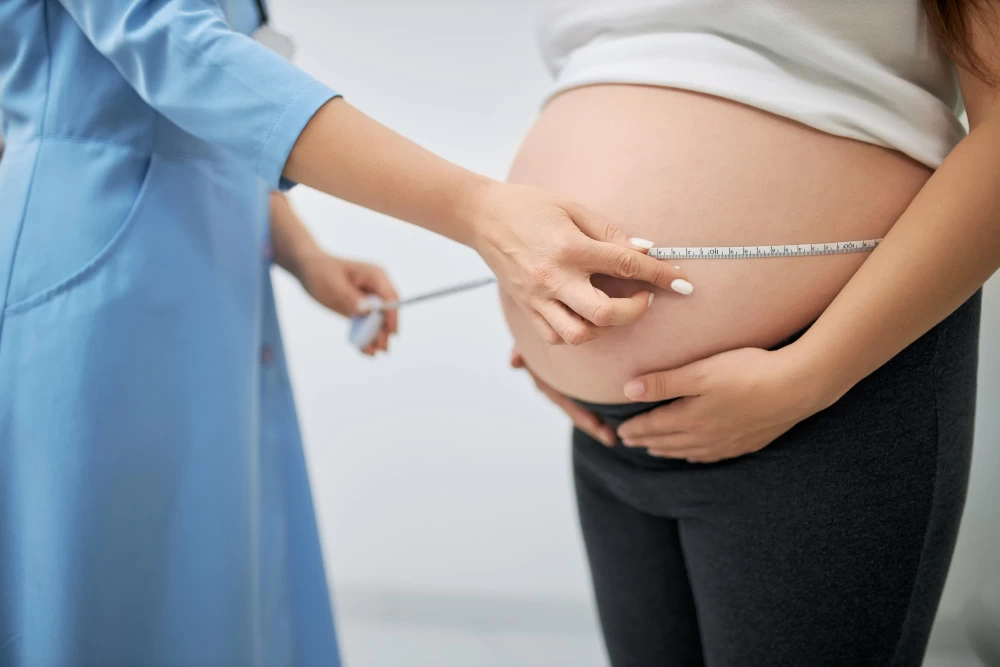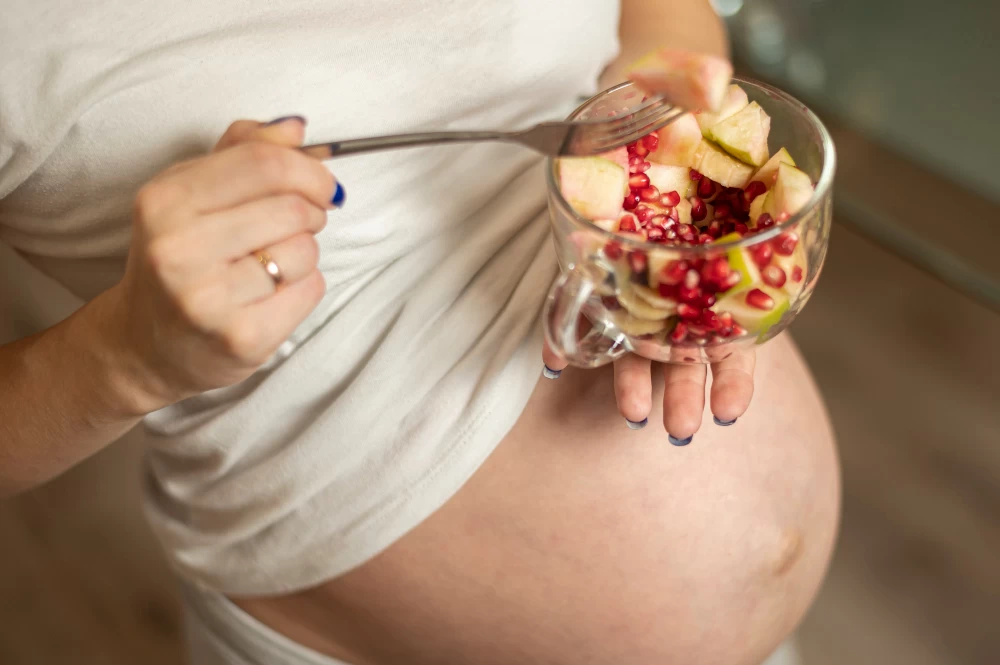
Obesity Surgery and Pregnancy
- Obesity Surgery and Pregnancy
- Is Obesity a Barrier to Conceiving?
- When Should You Get Pregnant After Bariatric Surgery?
- Suggestions
Obesity is an important health problem that causes difficulties in every aspect of people's lives. The treatment of this most important public health problem of our century, which has an impact all over the world, can be successfully performed with both drugs and surgery. There is a continuous improvement in treatment options. As there are new methods, existing surgical techniques are also changing and they are becoming easier and more effective.
However, one of the issues that are neglected and for which adequate information is not available while fighting this disease that deteriorates and forces health to such a degree is “pregnancy” and “being able to get pregnant”. As the frequency of these surgeries increases, the relationship between obesity and pregnancy has become more important. Because almost half of the people who have undergone bariatric surgery are people of reproductive age.
Many people and married couples apply to our obesity clinic who could not conceive naturally before, could not maintain pregnancy even if they did, and who had a history of in vitro fertilization in obstetrics and gynecology clinics for this purpose. The majority of our patients who come with the statement "You have to lose weight to get pregnant" are in the majority. Another issue is "can you get pregnant after obesity surgery?" , “Is the pregnancy sustainable?”, “Can it be delivered naturally?”, “When can one get pregnant?” Such questions are often asked.
Is Obesity a Barrier to Conceiving?
It is not a hindrance, but it significantly reduces conception. In other words, obesity itself makes it difficult to get pregnant. Conditions such as menstrual cycle (menstrual) disorders, irregularities, hormonal disorders, metabolic disorders necessary to maintain pregnancy, polycystic ovary, etc. make pregnancy difficult. About 40-50% of pregnant women are overweight or obese.
However, due to morbid obesity-related conditions, the chances of conceiving are unfortunately lower than those of normal weight. Some obesity-related problems occur in people who can become pregnant, or existing disorders may become evident during pregnancy and later in pregnancy. In pregnant obese; Diabetes, hypertension and cardiovascular diseases are more common.
Premature birth, miscarriage, threat of miscarriage, fetal death (baby death in the womb), birth traumas, lung problems, etc. is more frequent. The risk of encountering recurrent miscarriages, congenital (congenital) anomalies, pregnancy-associated hypertension, pre-eclampsia, gestational diabetes and thromboembolic events is high.
Again, the vast majority of overweight or morbidly obese pregnant women are candidates for cesarean section. Newborns tend to be larger babies, which increases cesarean rates and lengthens hospital stays. Postpartum bleeding rates are also high. Postpartum anxiety, infection, maternal and infant mortality, and need for intensive care are also higher.
As a result, it becomes difficult for obese people to become pregnant or maintain a pregnancy. Even if they achieve this, they are candidates to experience this process much more difficult and risky after conception, compared to normal-weight individuals. Because obesity brings with it some vital risks for both mother and baby. That's why we recommend that overweight people get pregnant after they regain their health with bariatric surgery.
When Should You Get Pregnant After Bariatric Surgery?
Pregnancy that will develop immediately after surgery carries risks that may cause maternal morbidity and even death. Therefore, we recommend pregnancy at the earliest 12-18 months after the operation. With weight loss and enteroendocrine hormonal changes, obesity-related diseases also improve. It is known that approximately 50% of women undergoing surgery are of reproductive age.
With bariatric surgery, fertility is enhanced by improvement in ovulation. Most obese women do not use any contraception before surgery, as they know that they cannot conceive spontaneously. Therefore, they should know that their fertility will increase with positive metabolic and hormonal changes together with weight loss after surgery and they must be protected for 1-2 years.
It should also be kept in mind that the effectiveness of oral contraceptives (protection drugs) will decrease due to the effect of surgery on both intestinal size and drug absorption. Again, it should be known that the effectiveness of birth control pills may decrease with occasional nausea and vomiting after surgery. It is accepted that methods such as intrauterine device, subcutaneous implants, etc. are more effective and safe. Gastric sleeve surgery is the most common type. It is an operation in which 2/3 of the stomach is removed.
Therefore, this volume reduction may cause limitation in food intake. Removal of the parts of the stomach, where appetite hormones are most secreted, causes loss of appetite. In R&Y gastric bypass surgery, both volume decreases and absorption is impaired. This can lead to a decrease in nutritional status and vitamin absorption.

Suggestions
- Pregnancy should be postponed until weight loss and its stabilization.
- Oral contraception (birth control pills) should be avoided and long-acting reversible contraceptive methods such as intrauterine device, subcutaneous implants, needles, etc. should be preferred.
- It is important to take the process with a good nutrition and dietitian.
- Patients with adjustable gastric band (stomach clamp) should have these adjusted from time to time according to nausea and vomiting.
- OGTT (sugar loading test) should be avoided due to dumping syndrome.
- HbA1c monitoring (strict monitoring) is required.
- Vitamin supplements
- Thiamine
- Folic acid
- Calcium
- Vit-D
- Iron
- Copper
- Zinc
- Vit-K
- Vit-E
- Vit-A
- Selenium
- Mental (mental health) status should be closely monitored.
- Fetal Monitoring (close monitoring of the baby in the womb) is very important.
- Weight gain during pregnancy should be closely monitored.
- Breastfeeding should be encouraged.
- Close follow-up is important for diabetes, blood pressure, and cardiovascular risks.
- It is necessary to avoid the use of alcohol and cigarettes.
In conclusion; Pre-pregnancy bariatric surgery is promising in reducing additional obesity-related diseases and problems for the mother, and there is a reduction in the risks of gestational diabetes and preeclampsia, which are serious complications for both mother and baby.
Although bariatric surgery reduces these obesity-related risks of women, it is necessary to focus on and have knowledge on how to reduce the risks of nutrition and vitamin absorption problems in people who have had bariatric surgery. For women, those with a history of bariatric surgery should be given nutritional support before pregnancy, and close nutrition and baby follow-up are required throughout pregnancy. It is also very important to exchange information between the physician who performs the obesity surgery and the obstetrician.





